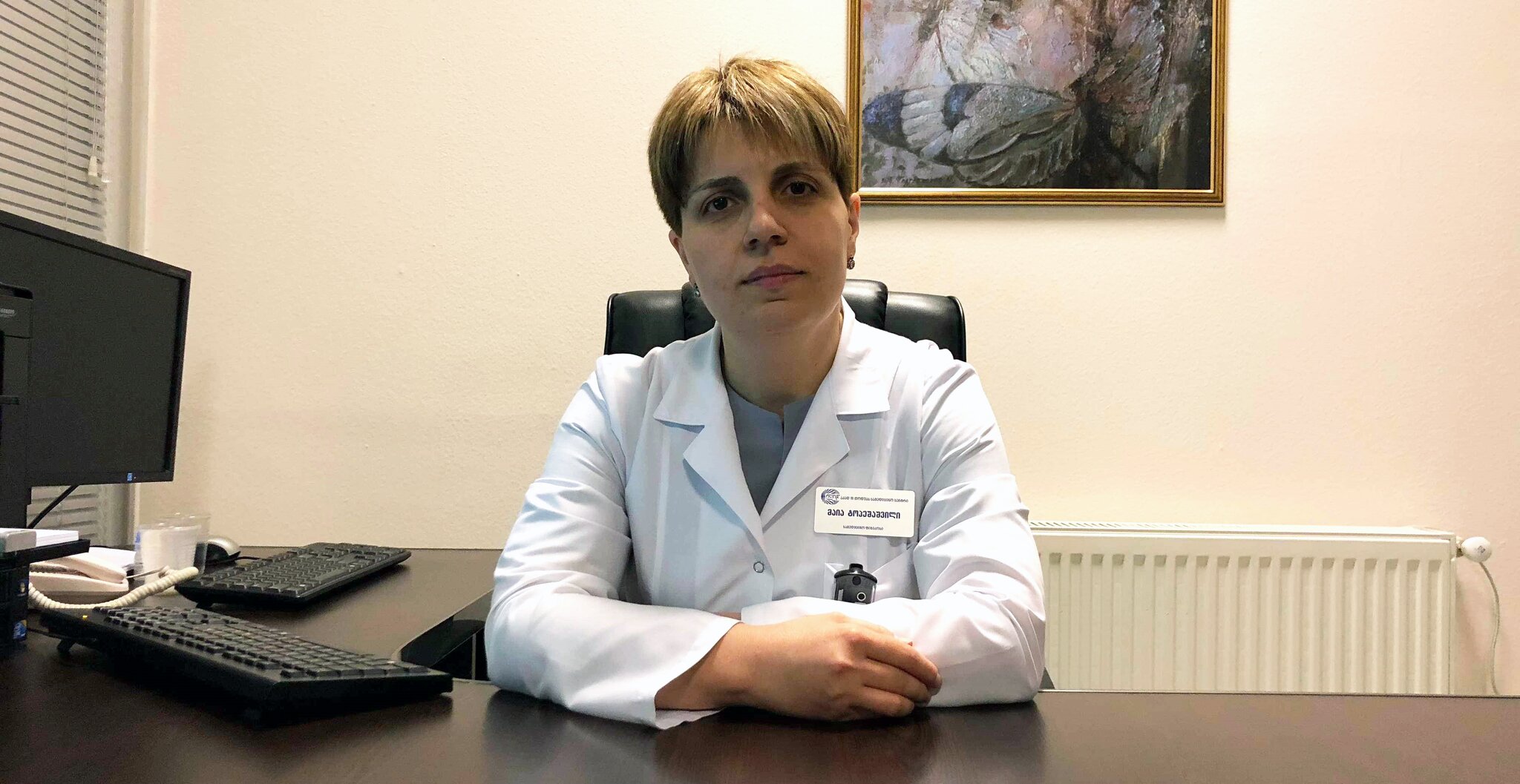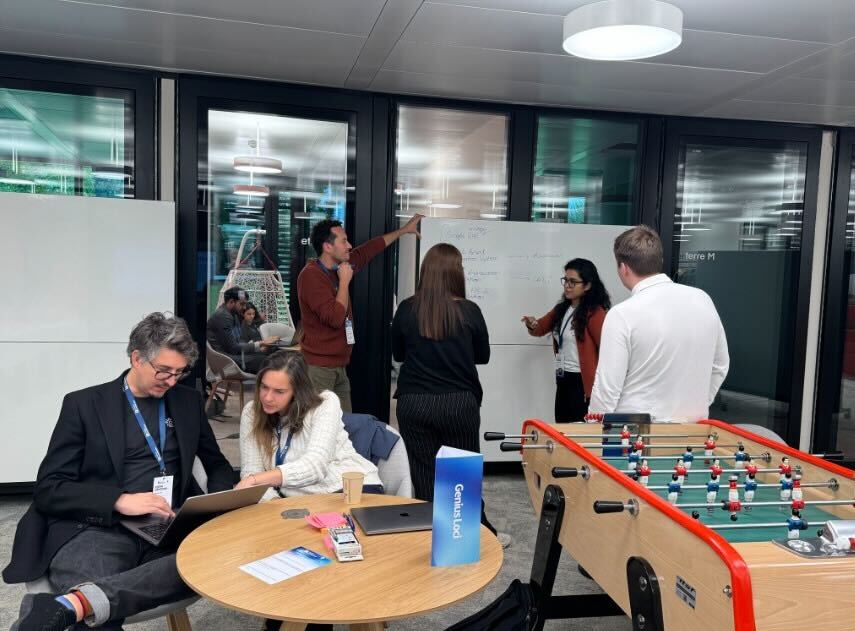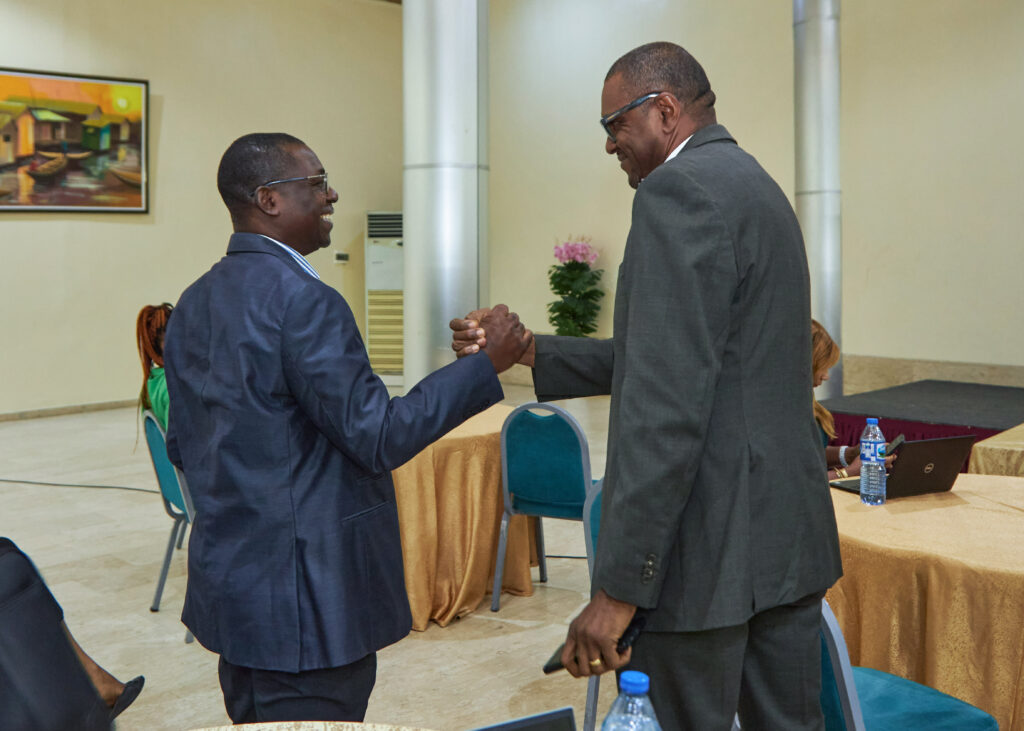
Maia Topeshashvili is the Chief Medical Physicist at the Radiation Oncology Department of the Todua Clinic in Tbilisi, Georgia. She has more than a decade’s experience in the field of radiation therapy and has been actively involved in setting up a range of advanced radiation oncology techniques in Georgia in recent years. She is the Vice President of the Georgian Medical Physics Association and also a member of the ESTRO Working Group on Leadership in Medical Physics. More recently, she has joined the City Cancer Challenge (C/Can) radiotherapy project team in Tbilisi and has been playing a key role in the implementation of C/Can’s Radiotherapy Quality Assurance Programme.
As part of the C/Can process, a data-driven needs assessment was conducted in Tbilisi. Can you outline the main needs and challenges identified for improving access to quality cancer care in the Georgian capital?
One of the main goals of the health care system of all countries is to reduce the burden of cancer mortality. For this reason, Georgia is focused on preventive measures, early detection of diseases, proper diagnosis and treatment.
This involves screening programmes for breast, cervical, prostate and colorectal cancers.
Georgia also provides the treatment of oncologic patients, specifically chemotherapy, hormone therapy and radiotherapy and investigations and medications related to these procedures. The programme cover all types of laboratory and instrumental investigations related to planned preoperative, perioperative and postoperative periods.
Despite the above, there are a number of challenges, such as low coverage of screening services, lack of information, geographical availability and fragmentation of services. A number of high-tech diagnostic and medical services have yet to be implemented in Georgia, such as high dosage chemotherapy and bone marrow transplantation.
Regarding radiotherapy, there are gaps in the management of oncology patient care and referral to radiation therapy nationwide and the result is that, most likely, some oncology patients are not getting optimal treatment.
We are seeing a steady improvement in therapy results, but at the same time, the diagnostic and therapeutic process grows more complex and complicated, and every stage of it must be planned, organised and controlled to assure the quality of services provided. Therefore, quality control, quality assurance, quality management programmes and quality management systems are recently the most important challenges of Radiotherapy.
Another challenge is academic educational programmes. Recently, we have seen these provided by equipment manufacturers, fellowships and expert missions and the IAEA as part of technical cooperation projects, as well as the WHO, which has a very limited number of positions and cannot be considered as a basis for continuing professional education programmes.
Twelve projects have been developed to address priority gaps in Tbilisi, including the Radiotherapy Quality Assurance Programme (RTQA). What need does this specifically address and what stage is the project at now?
The main goal of the RTQA Programme in Tbilisi is to establish a comprehensive quality management system at the national level, which will help RT services achieve standards of care equivalent to those of high-income countries.
All radiotherapy departments dealing with these sophisticated and advanced technologies in the country currently follow international RT QA/QC guidelines. The choice of which guidelines is the responsibility of each institution’s staff, as there are no unified protocols for quality assurance, so the establishment of unified national protocols for QA/QC is the main need of the field. These manuals will answer two needs: the standard required and how to meet it. The non-existence of QAC and limited human resources have contributed to a lack of internal quality audit implementation, peer reviews or external dosimetry checks, which are also considered in the RTQA programme.
The initial focus of the RTQA Programme will be to set up a local incidence reporting platform, although implementation of modern approaches and tools for continuous improvement in quality and safety, as failure mode and effect analysis (FMEA), incident learning systems (ILS), and so on are also addressed in the RTQA programme. In order to implement these advanced approaches, more training and human resources will be required.
In the meantime, the RTQA programme has been accepted by local as well as international experts, translated and sent to Georgia’s Nuclear and Radiation Safety Agency, the Ministry of Internally Displaced Persons from the Occupied Territories, the Labour, Health and Social Affairs Ministry, the Ministry of Education, as they will also participate in the initial phase of the RTQA.
As a medical physicist, what are your specific roles and responsibilities in the programme?
Within the C/Can collaboration framework, the city has established a local multi-sectoral executive committee to lead a city-wide assessment of capacity and needs in cancer care and to prioritise a range of actions. I am a member of the team tasked with improving quality and safe radiation therapy within the network of city hospitals, therefore I played an active role in preparing proposal drafts for three project outputs: a radiotherapy development plan with short- (2 years), medium- (5 years) and long-term (10 years) goals; a quality assurance programme; and a syllabus for comprehensive educational programmes for radiation medical physicists and radiation technologists.
What are the specific issues medical physicists face in Tbilisi and Georgia?
Looking back, we can see that over the last couple of decades, in Georgia we have moved from the simplest 2D planning to advanced state-of-art techniques, like IMRT/VMAT, SRS/SBRT, intra-fractional motion management, image guided radiotherapy, DIBH/4D, intraoperative radiotherapy, brachytherapy, which allows for state-of-art treatment in Georgia.
That said, due to limited human resources and limited number of experts, we still have no Quality Assurance Committees (QACs) in RT departments in Georgia. Therefore, the creation of QACs in all radiotherapy departments should be the main task of the city’s Radiotherapy Quality Assurance Programme.
Can you outline the importance of C/Can’s approach to building a multi-sectoral movement of partners and stakeholders able to design, plan and implement sustainable solutions for cancer diagnosis and treatment?
As mentioned, it has only been over the course of the last decade that Georgia has had access to advanced state-of art technologies in the field of radiation therapy. Which is why the country has not established official national protocols to monitor quality assurance and quality control in radiotherapy and also has limited number of human resources not only in the practical environment, but also in appropriate regulatory authorities. Therefore the importance of C/Can’s approach to building a multi-sectoral movement of partners and stakeholders is invaluable, while the multi-sectoral approach is one of the main aspects of comprehensive quality management.
Is there anything else you would like to add?
Just deepest respect to the C/Can Foundation, its experts and project and city managers, whose contribution to executing the project is invaluable.





